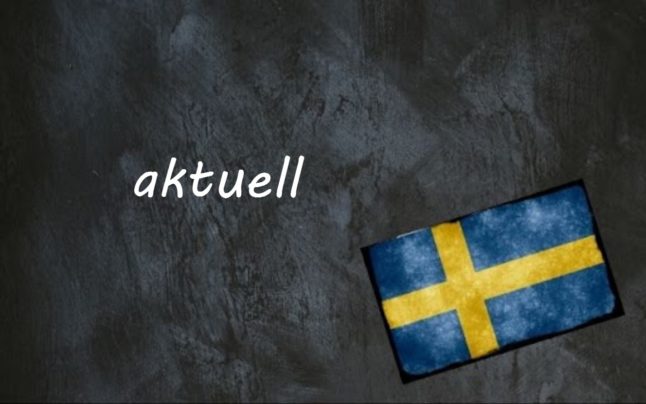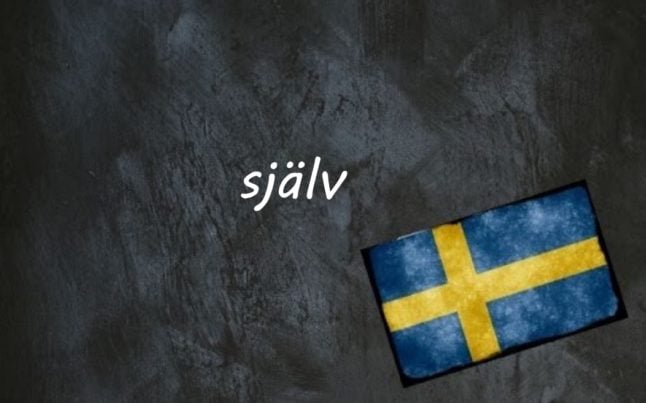Det är inte aktuellt is a phrase much-loved by politicians.
“Are you going to give workers six months a year off and lower the retirement age to 50?” a journalist might ask a campaigning politician in the run-up to a big election.
Instead of saying “no, of course not, don’t be ridiculous”, they would probably just say det är inte aktuellt, which essentially translates to something like “it’s not on the agenda”, or “there are currently no plans to do so”, and move on.
Aktuell comes originally from the French word actuel (current, topical), which in term comes from the Latin word actualis (active, practical). It was most likely loaned into Swedish from German, where it has the same meaning.
Aktuell is a false friend, it looks similar to the English word actual, and there’s a reason for this. Actual also comes from the Latin word actualis, but in English the meaning has shifted.
- Don’t miss any of our Swedish words and expressions of the day by downloading The Local’s new app (available on Apple and Android) and then selecting the Swedish Word of the Day in your Notification options via the User button
Another place you’re likely to see it is in interviews. If, for example, a famous Swedish musician was being interviewed, you might see something like hon är aktuell med en ny skiva som släpps i januari, which roughly translates as “she is current/topical with a new album, which will be released in January”. In this case, it’s essentially used to explain why the subject of the interview is relevant.
You can also use aktuell to talk about something being timely, with the negative form of the word being inaktuell, or outdated. One example could be a journalist asking their editor if they should cover a particular news story. If they were told nej, det är inaktuellt, that would essentially mean it’s no longer interesting or current.
Speaking of news, Aktuellt is the name of SVT’s in-depth current affairs programme, broadcast each weekday at 9pm.
There are also noun and verb forms of aktuell. For example, if you had some inaktuell (outdated) data, you could use the verb aktualisera to describe the process of bringing it up to date, after which you could discuss its aktualitet (up-to-dateness).
Example sentences:
Här hittar du aktuell busstidtabell.
You can find the current bus timetable here.
Vi har ett litet barn, så Ferrarin var inte aktuell.
We have a small child, so the Ferrari wasn’t an option.
Villa, Volvo, Vovve: The Local’s Word Guide to Swedish Life, written by The Local’s journalists, is available to order. Head to lysforlag.com/vvv to read more about it. It is also possible to buy your copy from Amazon US, Amazon UK, Bokus or Adlibris.



 Please whitelist us to continue reading.
Please whitelist us to continue reading.
Member comments